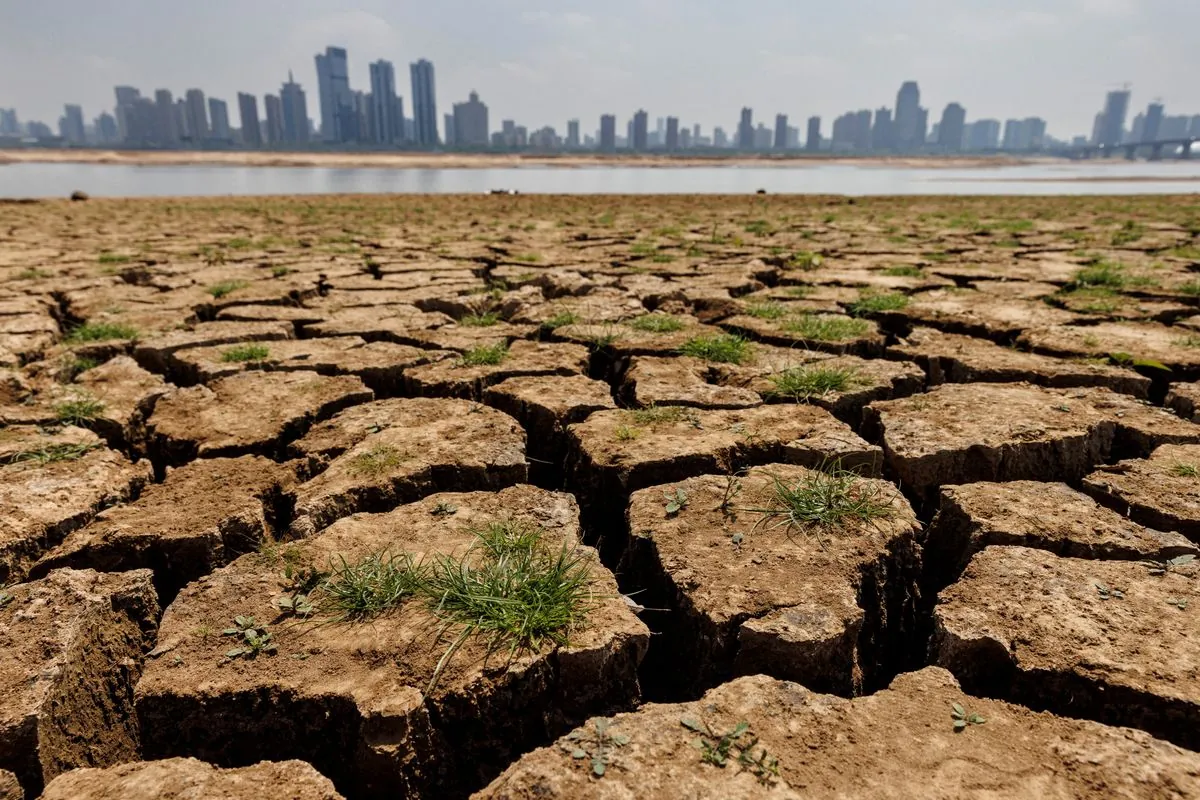The World Meteorological Organization (WMO) has released a report highlighting the severe impact of climate change on global water resources. According to the findings, 2023 was the driest year for the world's rivers in more than three decades, coinciding with record-breaking temperatures that exacerbated drought conditions in many regions.
Celeste Saulo, WMO Secretary-General, emphasized the critical role of water as an indicator of climate change. She stated, "Water is the canary in the coalmine of climate change. We receive distress signals in the form of increasingly extreme rainfall, floods and droughts which wreak a heavy toll on lives, ecosystems and economies." This analogy draws from the historical use of canaries in coal mines to detect dangerous gases, highlighting the urgency of the situation.
The report reveals that glaciers, which store about 69% of the world's freshwater, experienced their largest mass loss in the past five decades. This rapid melting poses a significant threat to long-term water security for millions of people globally. The cryosphere, encompassing all frozen parts of the Earth's surface, is particularly vulnerable to rising temperatures.
Climate change is disrupting the hydrological cycle, leading to more erratic and unpredictable water patterns. This instability results in extreme events such as intense rainfall and prolonged droughts, often occurring in the same regions. The El Niño and La Niña phenomena further complicate these patterns, significantly impacting global precipitation.
The WMO report paints a concerning picture of water accessibility. Currently, about 3.6 billion people face inadequate access to water for at least one month per year. This number is projected to increase to 5 billion by 2050, underscoring the urgent need for sustainable water management practices.
The Americas were particularly affected in 2023. The southern United States, Central America, and South American countries including Argentina, Brazil, Peru, and Uruguay experienced widespread drought conditions. The Amazon River, which typically discharges an average of 209,000 cubic meters of water per second into the Atlantic Ocean, saw some of its lowest water levels ever recorded. Similarly, Lake Titicaca, the largest freshwater lake in South America and the highest navigable lake globally, reached unprecedented low levels.
Stefan Uhlenbrook, director of hydrology, water and cryosphere at WMO, noted the exceptional nature of the 2023 drought: "In the (last) 33 years of data, we had never such a large area around the world which was under such dry conditions." This observation aligns with climate models predicting that many dry regions will become drier as global temperatures rise.
The WMO emphasizes the need for improved data collection and sharing to better understand and respond to these water resource challenges. Remote sensing technologies, such as satellites, are increasingly vital for monitoring global water resources and informing policy decisions.
As the world grapples with these water-related issues, the United Nations Sustainable Development Goal 6, which focuses on ensuring availability and sustainable management of water and sanitation for all, becomes increasingly relevant. The Paris Agreement's aim to limit global temperature increase to well below 2°C above pre-industrial levels is crucial in mitigating the impacts on water resources.
The report serves as a stark reminder of the interconnectedness of climate change, water resources, and human well-being. As droughts intensify and glaciers continue to melt, the need for concerted global action to address climate change and ensure water security for future generations becomes ever more pressing.
"Water is the canary in the coalmine of climate change. We receive distress signals in the form of increasingly extreme rainfall, floods and droughts which wreak a heavy toll on lives, ecosystems and economies."
